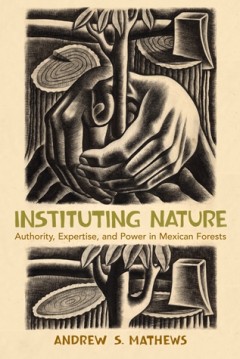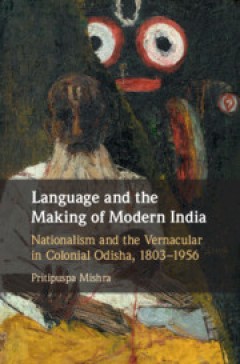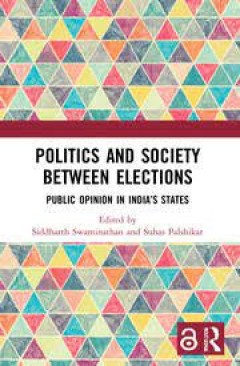Filter by

Who's asking? : Native science, Western science, and science education
"The answers to scientific questions depend on who's asking, because the questions asked and the answers sought reflect the cultural values and orientations of the questioner. These values and orientations are most often those of Western science. In Who's Asking?, Douglas Medin and Megan Bang argue that despite the widely held view that science is objective, value-neutral, and acultural, scient…
- Edition
- -
- ISBN/ISSN
- 9780262319430
- Collation
- 1 online resource (xii, 282 pages) :illustrations
- Series Title
- -
- Call Number
- -

Instituting Nature: Authority, Expertise, and Power in Mexican Forests
Here, Mathews describes Mexico's efforts over the past hundred years to manage its forests through forestry science and biodiversity conservation. He shows that transparent knowledge was produced by encounters between the relatively weak forestry bureaucracy and the indigenous people who manage and own the pine forests of Mexico.OCLC-licensed vendor bibliographic record.
- Edition
- -
- ISBN/ISSN
- 9780262298537
- Collation
- 1 online resource (xii, 304 pages) :illustrations, maps.
- Series Title
- -
- Call Number
- -

Recycling class :the contradictions of inclusion in urban sustainability
"An ethnographic and community-engaged study of the contradictions of cross-class environmental mobilizations around Bengaluru's discards"--OCLC-licensed vendor bibliographic record.
- Edition
- -
- ISBN/ISSN
- 9780262376976
- Collation
- 1 online resource.
- Series Title
- -
- Call Number
- -

The unnaming of Kroeber Hall :language, memory, and iconoclasm
"A balanced attempt to understand the controversy over renaming a building on the campus of UC Berkeley"--OCLC-licensed vendor bibliographic record.
- Edition
- -
- ISBN/ISSN
- 9780262377263
- Collation
- 1 online resource
- Series Title
- -
- Call Number
- -

Educating for the anthropocene :schooling and activism in the face of slow vi…
"Based on a multi-sited ethnography among schools and activist groups in India and South Africa, this study offers an exploration of education practices in the context of impoverished, marginal communities where environmental crises intersect with colonial and racist histories and unsustainable presents"--OCLC-licensed vendor bibliographic record.
- Edition
- -
- ISBN/ISSN
- 0262370727
- Collation
- 1 online resource.
- Series Title
- -
- Call Number
- -

Monsoon economies :India's history in a changing climate
How interventions to mitigate climate-caused poverty and inequality in India came at a cost to environmental sustainability.In the monsoon regions of South Asia, the rainy season sustains life but brings with it the threat of floods, followed by a long stretch of the year when little gainful work is possible and the threat of famine looms. Beginning in the late nineteenth century, a series of i…
- Edition
- -
- ISBN/ISSN
- 9780262369275
- Collation
- 1 online resource (xiii, 212 pages)illustrations
- Series Title
- -
- Call Number
- -

Language and the Making of Modern India: Nationalism and the Vernacular in Co…
Through an examination of the creation of the first linguistically organized province in India, Odisha, Pritipuspa Mishra explores the ways regional languages came to serve as the most acceptable registers of difference in post-colonial India. She argues that rather than disrupting the rise and spread of all-India nationalism, regional linguistic nationalism enabled and deepened the reach of na…
- Edition
- -
- ISBN/ISSN
- 9781108591263
- Collation
- -
- Series Title
- -
- Call Number
- 491.4 MIS l

India's global challenge: Growth and leadership in the 21st century
“India wins yet again!” Narendra Modi announced in May 2019, just after securing a second term as Prime Minister of the world’s largest democracy in a landslide general elections victory. When Modi was elected for a first term five years ago, he promised that India would win back its place at the high table of leading world powers. Indeed, after decades of sustained growth, India today is…
- Edition
- -
- ISBN/ISSN
- 9788855260084
- Collation
- -
- Series Title
- -
- Call Number
- -

Written Culture in a Colonial Context Africa and the Americas 1500-1900
There is very little in the modern literature on the history of written culture that describes the specific practices related to writing that were anchored in colonial contexts. It was not just ships, soldiers, missionaries and settlers that drove the process of European expansion from the 16th to the 19th centuries. The circulation of images, manuscripts and books between different continents …
- Edition
- -
- ISBN/ISSN
- 9781920499167
- Collation
- -
- Series Title
- -
- Call Number
- -

Politics and Society between Elections Public Opinion in India’s States
Elections are episodic; governance is routine. This book studies patterns in public opinion on politics and society between elections in India. By using the survey data covering 24 Indian states including the National Capital Region of Delhi (NCR), it will serve as State barometers of public opinion. The surveys seek to understand how politics and governance processes are nested in the social a…
- Edition
- -
- ISBN/ISSN
- 9781003120483
- Collation
- -
- Series Title
- -
- Call Number
- -
 Computer Science, Information & General Works
Computer Science, Information & General Works  Philosophy & Psychology
Philosophy & Psychology  Religion
Religion  Social Sciences
Social Sciences  Language
Language  Pure Science
Pure Science  Applied Sciences
Applied Sciences  Art & Recreation
Art & Recreation  Literature
Literature  History & Geography
History & Geography